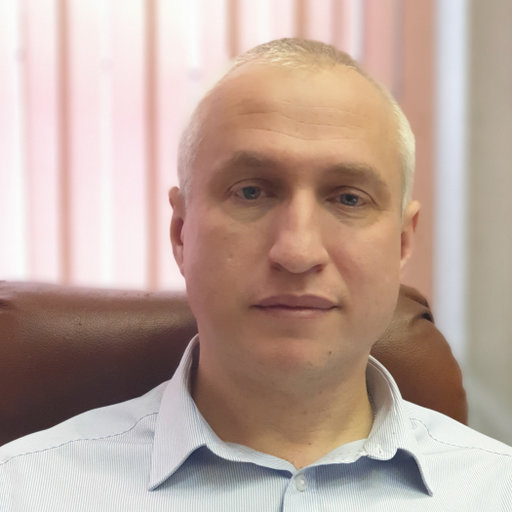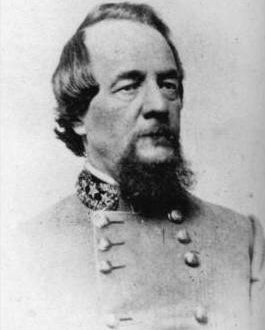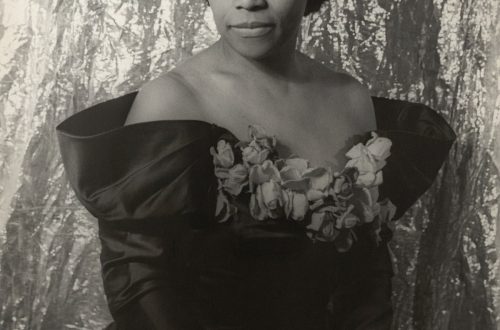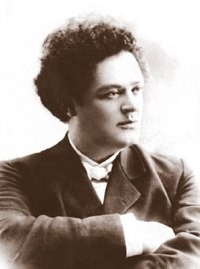
Mikhail G. Kiselev |
Mikhail Kiselev
The earliest childhood memories of Mikhail Grigorievich are associated with singing. Until now, he hears the unusually sincere and soulful voice of his mother, who, in moments of short leisure, loved to sing folk songs, drawn out and sad. She had a great voice. A little before light, young Misha’s mother went to work until late in the evening, leaving the house for him. When the boy grew up, he was apprenticed to a sausage maker. In a semi-dark, gloomy basement, he worked 15-18 hours a day, and on the eve of the holidays he spent all day and night in a haze, falling asleep for an hour or two right there on the stone floor. After the October Revolution, Mikhail Kisilyev goes to work at a locomotive repair plant. Working as a mechanic, he simultaneously studies at the workers’ faculty, and then enters the Novosibirsk Engineering Institute.
Even in his student years, Kisilev began to study in a vocal circle at a workers’ club, the leader of which repeatedly told him: “I don’t know what kind of engineer you will turn out to be, but you will be a good singer.” When the Inter-Union Olympiad of amateur performances took place in Novosibirsk, the young singer took first place. All jury members recommended that Mikhail Grigorievich go to study at the Moscow Conservatory. However, the modest and demanding singer decided that he needed to get good training earlier. He goes to his homeland and enters the Michurin Musical College, in the Tambov region. Here, his first teacher was the opera singer M. Shirokov, who gave a lot to his student, paying special attention to the correct setting of the voice. From the third year of the music school, Mikhail Grigorievich transferred to the Sverdlovsk Conservatory in the class of the teacher M. Umestnov, who brought up a whole galaxy of opera artists.
While still a student at the conservatory, Kisilyev performed at the Sverdlovsk Opera and Ballet Theatre, where he performed his first opera part as a guard in Koval’s opera Emelyan Pugachev. Continuing to work in the theater, he graduated from the conservatory in 1944, and then was sent to the Novosibirsk Opera and Ballet Theatre. Here he prepared all the main parts of an extensive repertoire (Prince Igor, Demon, Mizgir, Tomsky, Rigoletto, Escamillo and others), having gone through a good school of musical stage art. At the final concert of the Siberian Decade in Moscow, Mikhail Grigorievich brilliantly performed Robert’s aria from Iolanta. His beautiful, strong voice of a wide range remained for a long time in the memory of the listeners, who appreciated the feeling of extraordinary sincerity and creative excitement that invariably distinguished his performance, whether it was a leading part or an inconspicuous episodic role.
After a successful audition, in which the artist sang Tomsky’s aria and an excerpt from Rigoletto, he is accepted into the Bolshoi Theater. As the critics of those years noted: “Kisilyov is alien to admiring his own voice, which is inherent in some performers. He works hard on the psychological disclosure of each role, tirelessly looking for expressive touches that help convey to the listener the essence of the created musical stage image. Preparing to perform the part of Mazepa in P. I. Tchaikovsky’s opera, the singer, who was then in Essentuki, unexpectedly discovered the most interesting documents in the city library. It was Mazepa’s correspondence with Peter I, which somehow got there. A careful study of these documents helped the artist to create a vivid characterization of the insidious hetman. He achieved special expressiveness in the fourth picture.
A peculiar, memorable portrait of the tyrant Pizarro was created by Mikhail Grigorievich in Beethoven’s opera Fidelio. As music critics noted: “He successfully overcame the difficulties of the transition from singing to colloquial speech, transmitted in the form of recitative.” In the work on this difficult role, the director of the play, Boris Alexandrovich Pokrovsky, rendered great assistance to the artist. Under his leadership, the singer created the image of the sly Figaro sparkling with joy and optimism in Mozart’s immortal opera The Marriage of Figaro, staged at the Bolshoi Theater in 1956.
Along with work on the opera stage, Mikhail Grigorievich also performed on the concert stage. Heartfelt sincerity and skill distinguished his performance of romance lyrics by Glinka, Borodin, Rimsky-Korsakov, Tchaikovsky, Rachmaninov. The singer’s performances in our country and abroad were accompanied by well-deserved success.
Discography of M. G. Kisilev:
- Part of the Prince in P. I. Tchaikovsky’s opera The Enchantress, VR Choir and Orchestra conducted by S. A. Samosud, recorded in 1955, partners – G. Nelepp, V. Borisenko, N. Sokolova, A. Korolev and others. (Currently, a CD with the recording of the opera has been released abroad)
- Part of Rigoletto in the opera of the same name by G. Verdi, recorded by BP in 1963, conductor – M. Ermler, part of the Duke – N. Timchenko. (Currently, this recording is stored in the radio funds)
- Part of Tomsky in the opera The Queen of Spades, choir and orchestra of the Bolshoi Theater conducted by B. Khaikin, recorded in 1965, partners – Z. Andzhaparidze, T. Milashkina, V. Levko, Y. Mazurok, V. Firsova and others. (Currently, a CD with the recording of the opera has been released abroad)
- Part of Tsarev in Semyon Kotko by S. S. Prokofiev, VR Choir and Orchestra conducted by M. Zhukov, recording of the 60s, partners – N. Gres, T. Yanko, L. Gelovani, N. Panchekhin, N Timchenko, T. Tugarinova, T. Antipova. (The recording was released by Melodiya in a series from the collected works of Prokofiev)
- Part of Pavel in the opera “Mother” by T. Khrennikov, choir and orchestra of the Bolshoi Theater conducted by B. Khaikin, recording of the 60s, partners – V. Borisenko, L. Maslennikova, N. Shchegolkov, A. Eisen and others. (The recording was released on gramophone records by the Melodiya company)





